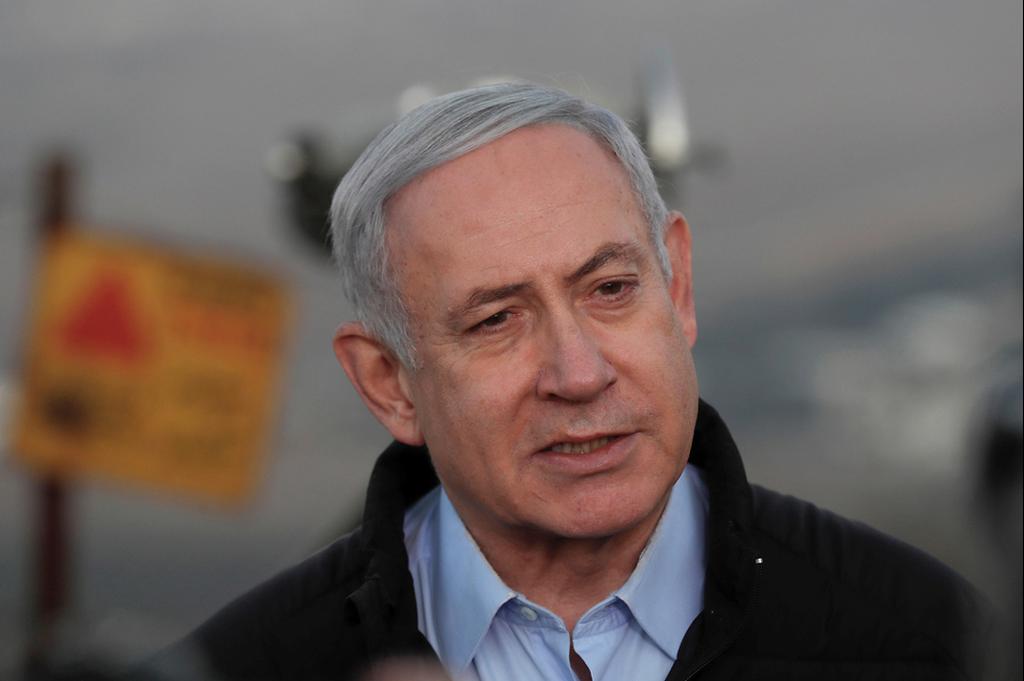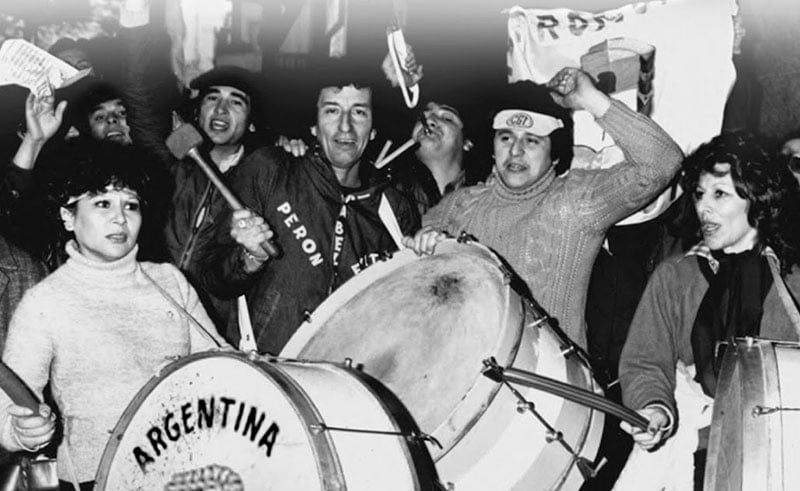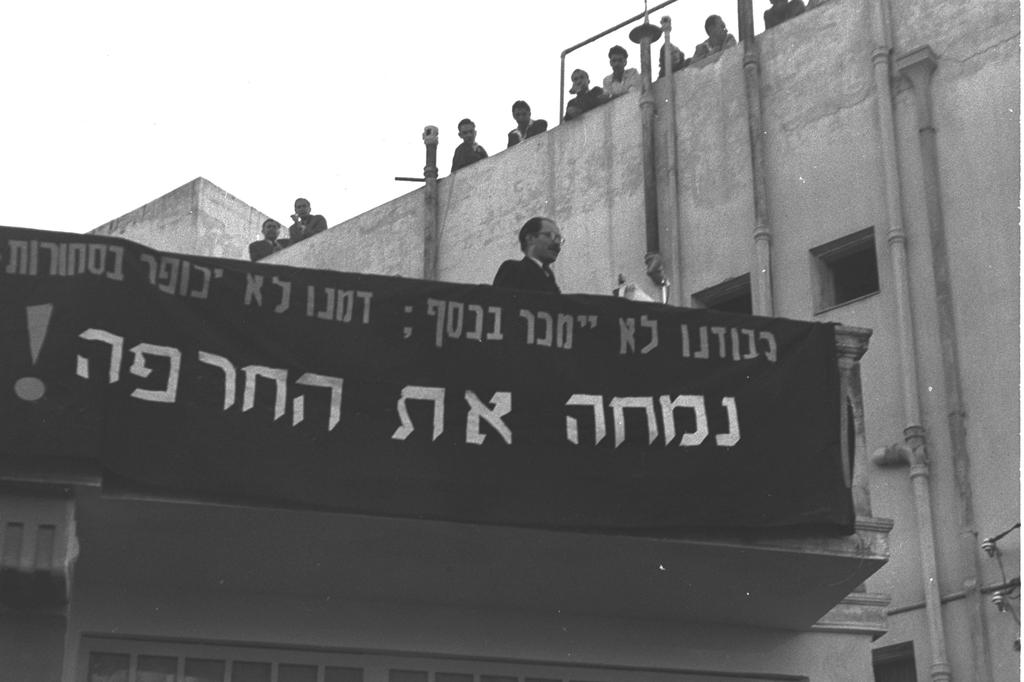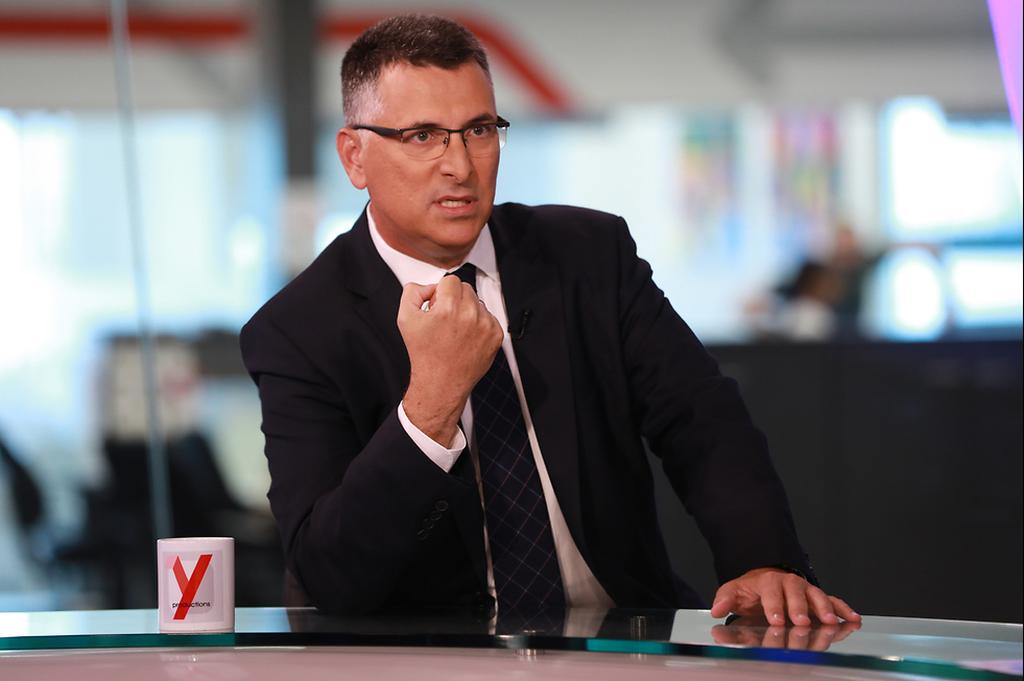Getting your Trinity Audio player ready...
During the rule of Juan Peron, the former populist dictator of Argentina, his supporters would arrive at any political public gathering and silence speakers with huge drums called bombos.
The origin of these drums derives from the soccer culture of Latin America, and are used frequently during games by fans.
"The roars of the crowd were joined by the pulsating hammer blows of the Bombos," said Israeli journalist Amos Elon during a visit to Argentina immediately after Peron was deposed from power.
"The drums are the worst part of it. They have this tribal, primitive and wild feeling to them."
It is now the time of drums in Israel's public squares.
Saturday night brought protests for Netanyahu in Jerusalem and the north and protests against him in Tel Aviv and Petah Tikva.
But these were just the warm-up act for the mass protest the embattled prime minister's supporters are planning for Tel Aviv on Tuesday night.
Protests have long been a norm in Israel - well they were - but this protest is different.
For the first time since this nation was founded, a sitting prime minister is rallying his supporters to rail against the very institutions at whose head he stands.
Not against a rival party, nation or people – but against the system and the rule of law.
Peron did this in Argentina, Trump did the same in the U.S. and Netanyahu now is following in their path.
6 View gallery


Netanyahu supporters protesting outside his residence in Jerusalem
(Photo: Rafi Kutz)
The people that will arrive - by which means will be quite interesting to observe.
Will buses from the West Bank crammed with settlers fill Tel Aviv's main streets? Will the ultra-Orthodox arrive? Will your average Likud voter show up?
Various previous attempts to shift the debate over Netanyahu's cases to the streets have been a resounding failure - so far.
From party gatherings at Tel Aviv Expo center to rival protests for and against the prime minister outside his Jerusalem residence have been marked as apathetic and lacking in numbers.
Not many Israelis are ready to mount the barricades, block the roads and inhale the tear gas.
Most of his supporters have resorted to letting off steam on social media, but then return to their day-to-day affairs feeling good about themselves and their activism.
Civil war? Not in our neighborhood, especially not for Netanyahu's court cases.
For the sake of comparison, venerated Likud leader Menachem Begin managed to draw the crowd onto the streets only once in his political career.
After a reparations agreement for Holocaust victims was signed between Israel and West Germany in 1953, thousands took to the streets in protest of the decision, with Begin at the head of those who opposed the move.
In one instance, protesters tried to break into the Knesset, eventually being routed by police forces.
This was a miserable decision by Begin, but it stemmed from the heart, from a genuine feeling of the emotional objections, not from his own personal interests.
Those warnings voiced by Netanyahu's supporters of an imminent civil war only do so to scare the judicial system away from doing its work.
Israel must not succumb to such statements; what needs to be done will be done.
Gideon Sa'ar, a leading Likud MK and Netanyahu's main party rival, said during a Saturday TV interview that Netanyahu should be replaced by political and not judicial action.
Theoretically, he is right. In an ideal world, the current debacle would be resolved in an internal election by the Likud party, resulting in a different candidate who has not been indicted.
If such an action were taken expediently, a unity government could be formed quickly or Israel could go into the prospective election season free from the shadow of a criminal indictment hanging over everything.
Unfortunately, our current reality is far from ideal. Sa'ar and his camp are scattered and few in their party.
Other senior Likud MKs such as Israel Katz, Gilad Erdan, Yuli Edelstein and others have chosen to stand aside and pray for a miracle.
This political black hole has sucked in the judicial system. In the Basic Law: The Government, there is no reference to how to handle a candidate in Netanyahu's situation. His claim that the law allows him to stay on as prime minister is mere fiction by his colleagues in Jerusalem.
This is a hot potato of a situation: no one – not the attorney general or any of the Supreme Court justices – wants to be the one to decide to legal precedent for whether Netanyahu should stay or go.
It's one thing to resign the premiership after evidence is heard in a court of law, but it's another when the reason is a technicality. Nevertheless, a decision will have to be made.
A Likud official told me that Netanyahu is now thinking of his place in history. He understands that the jig is up, but he doesn't want to go down as the last of the crooks.
6 View gallery


A protest against Benjamin Netanyahu in Jerusalem after charges were announced Thursday. The banner in red reads: Parting from Netanyahu
(Photo: EPA)
A way out to for Netanyahu has to be found, so he can resign without disgrace. This is a reasonable position, but Netanyahu's furious demeanor following the announcement of the indictments isn't making anyone eager to find it.
The state is waiting for a sign, and meanwhile the political turmoil becomes chronic, there is no government and now we have a legal crisis, with people inciting in the streets.
All of this because of one man and his troubles.





